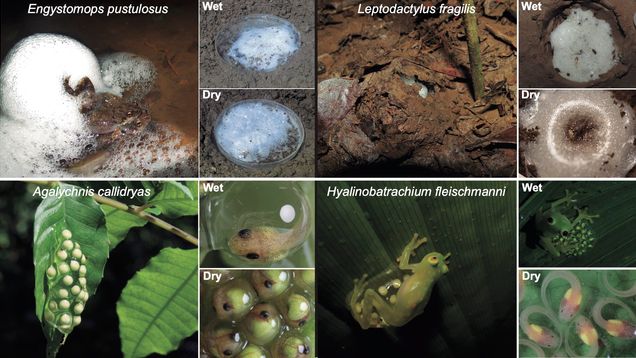
Biology PhD alum, Dr. Javier Méndez Narváez of the Warkentin Lab recently had his first dissertation chapter “Reproductive colonization of land by frogs: Embryos and larvae excrete urea to avoid ammonia toxicity” published in the journal Ecology and Evolution and highlighted as News of the Week by AmphibiaWeb for the week of April 4, 2022 (archive available here).
Javier studies the ecophysiology, development, behavior, and evolution of Neotropical amphibians. He joined the Warkentin Lab in 2015, after a Masters at Universidad de los Andes, Colombia, on the thermal ecology of leptodactylid frog embryos in foam nests, and recently graduated from BU with a PhD in Biology (January 2022). His dissertation examined the role of phenotypic plasticity in reproductive colonization of land by frogs, focusing on urea excretion and mechanisms to avoid ammonia toxicity during terrestrial development in three Neotropical frog families that independently evolved terrestrial eggs.
His work both informs our understanding of basic amphibian biology and has conservation implications. Javier co-founded the conservation research NGO Fundación Calima in his home town of Cali, Colombia, and has returned home to work with that organization. He is also on the organizing committee for the third Congreso Colombiano de Herpetología, to be held in Cali this summer.
Congratulations, Javier!